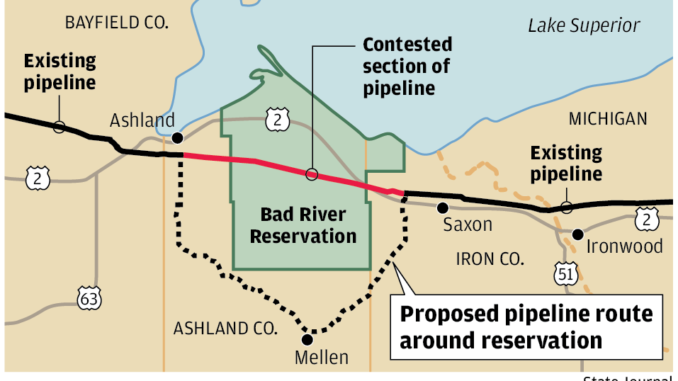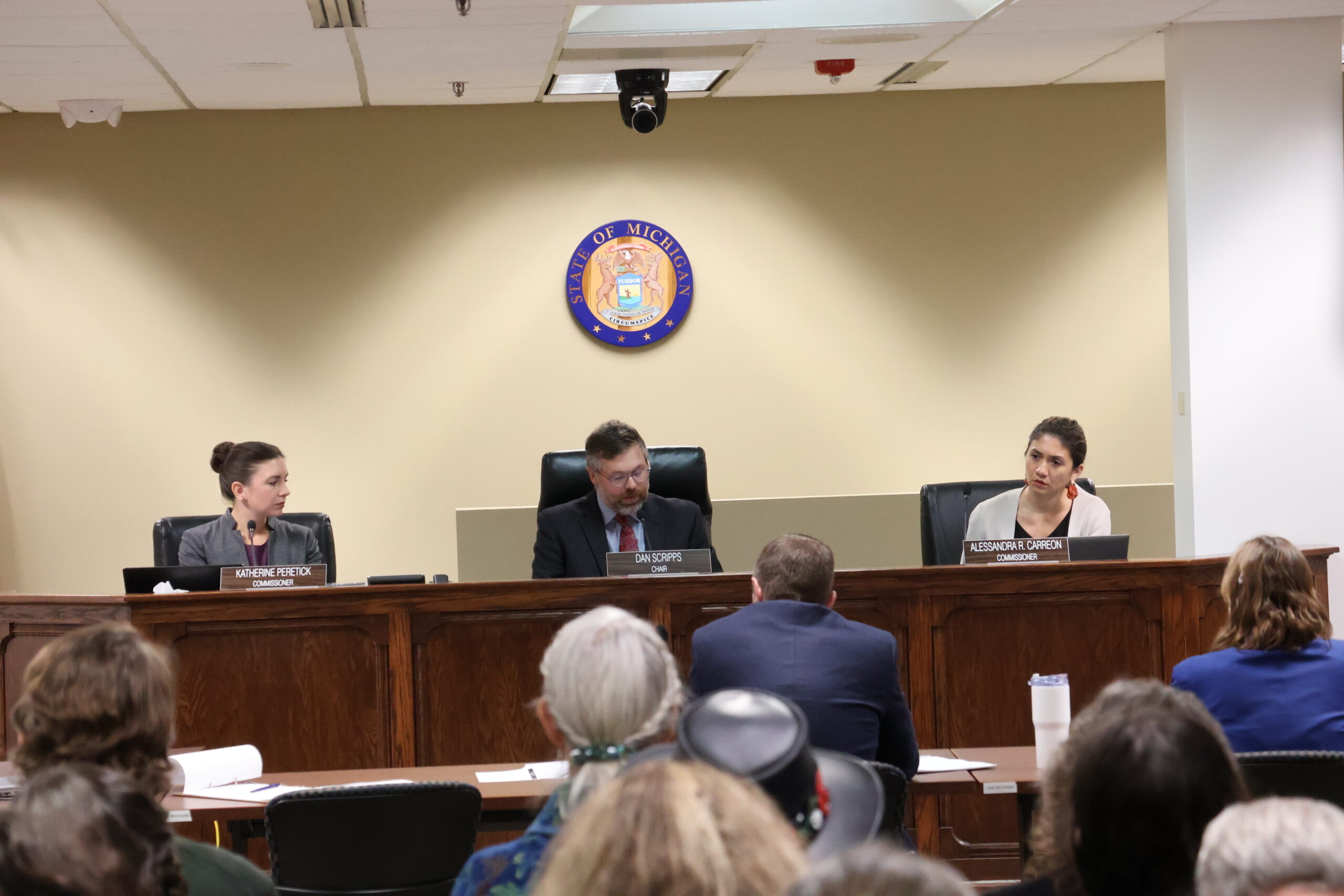Dear Directors Brader and Grether, Attorney General Schuette and members of the Michigan Pipeline Safety Advisory Board:
In January 2017, the Great Lakes Business Network (GLBN) formed around a common goal of protecting the Great Lakes and the blue economy that depends on the health of our freshwater. The Network quickly took the position that Line 5 in the Straits of Mackinac poses too great of a risk to the Great Lakes, their business, and Michigan’s tourism economy, and that it should be decommissioned in a strategic manner that minimizes any potential economic disruptions. The Network has more than 60 members from around the state and region – these businesses depend on clean water and a tourism economy.
The GLBN has carefully reviewed Dynamic Risk’s Alternatives Analysis and respectfully requests that Dynamic Risk and the state of Michigan incorporate the following changes in a final report. Without these changes, the report biases the interests of one business – Enbridge Energy – over the interests of the businesses we represent.
Overall Scope of Analysis is Flawed
The GLBN believes that the scope and tone of the alternatives report is deeply flawed as it represents primarily the business interests of Enbridge while largely ignoring the interests of Great Lakes businesses and residents that depend on our freshwater resources for our livelihood. We take the position that the state of Michigan has a duty to protect the interests of Michigan’s resources and local economy. This duty supersedes the interests of one particular company and its desire to use the Great Lakes as a shortcut for mostly Canadian oil and natural gas liquids to reach mostly Canadian and foreign markets.
Failure to Fully Realize Regional Pipeline Potential
The report falsely assumes that it is the State’s responsibility to find a pathway for Enbridge to deliver 540,000 barrels per day (bpd) – Line 5’s current maximum capacity. Even with this false assumption, the report ignores Enbridge’s recent massive capacity expansion on its entire Lakehead system as well as fails to fully realize their forecasted growth. Since the 2010 oil spill into the Kalamazoo River, Enbridge has increased capacity around the Great Lakes by well over 300,000 bpd. In addition, Enbridge currently has several projects underway on the Lakehead system that were not fully considered. For example, Enbridge’s self-described ‘Eastern Access Initiative’ significantly increases the capacity of product in the Enbridge network for markets beyond Michigan and the Great Lakes region.
This system-wide expansion does not serve the interests of Michigan or the Great Lakes region and was neither reviewed nor considered by the consultants of this report. As a result, the baseline assumption for review of alternatives is skewed. In the final report, the contractors should provide an alternative pathway that only considers the portion of oil and natural gas liquids currently in Line 5 which serves the purpose of fulfilling energy demand in Michigan. In addition, the recent expansion should be noted in the analysis with the premise that it offsets the possible Line 5 decommissioning.
Estimates of Impacts and Costs of an Oil Spill Are Woefully Inadequate
The consultants used extremely conservative and inaccurate estimates of what the public assumed would be an analysis of a worst case scenario oil spill at the straits. The report does not consider the largest foreseeable discharge of oil and the most adverse foreseeable weather conditions including storms and ice cover. These assumptions result in spill estimates that fall well below what even Enbridge acknowledged to the state of Michigan in a 2014 letter – that 8,583 barrels is “the worst-case discharge at the Straits”.
As a result of these low spill estimates, the consultant’s estimate of $100 – 200 million in economic impact pales in comparison to the real-world costs of Enbridge’s 2010 spill in the Kalamazoo River, whose damage and cleanup costs topped $1 billion. It is unreasonable to conclude that a spill in the open waters of the Straits of Mackinac — perhaps under ice cover — would not massively exceed the costs of a spill confined to a river channel. Enbridge’s own estimates submitted to Attorney General Schuette, which we believe are still well below a reasonable estimate of worst case spill scenario, predict the cost to be within the range of $450 million to $1 billion depending on the time of year and conditions.
Finally, the report does not adequately describe how Michigan residents would bear the costs of an oil spill, as opposed to Enbridge. Because Enbridge is the primary beneficiary of this pipeline, the costs that would be borne by shoreline communities, Michigan residents and businesses are of ultimate importance. Dynamic Risk needs to include a true “worst case” spill scenario in the final report for it to have relevance for state decision making.
Risk Assessment is Low
Beyond the underestimate of the cost and impact of a spill, the consultants also systemically underestimated the risk of a spill occurring. The consultant team did not account for the long-term usage of the pipeline and the cumulative impact of rare events (like storms, sinking vessels, terrorism, etc.). It is also relevant that risk evaluations were not weighted evenly – risks were analyzed for the 4.5 miles of pipeline in the straits while market impacts, socioeconomic impacts, etc. were analyzed for its entire infrastructure. This is not how we make business decisions and we assume not how the state would decide the future of Line 5 – we need apples-to-apples comparisons. Similarly, while the consultants determined the probability of releases due to mechanical damage and incorrect operations as 96% of the total release probability, they devoted most of their analysis to pipeline failure.
Finally, the state should clarify how the contracted scope of the risk analysis in this study is different from and less than the scope on the Risk Analysis study that was cancelled. Because this may be the only assessment of risk completed, it is important that its relevance be fully described to the public.
Other Concerns with the Study:
Alternatives for Propane Delivery to the U.P. Are Not Adequately Described
Enbridge has routinely pointed to Line 5’s delivery of propane to Michigan’s Upper Peninsula as a critical public benefit that helps justify the risk of a spill at the straits. While the Alternative Analysis study considers the possible costs of trucking and rail shipments of propane to the U.P., it does not clearly describe the more obvious alternative of using a simple 4” dedicated pipeline to transport propane to Rapid River should Line 5 be decommissioned. With Enbridge’s apparent concern for delivering propane and an existing easement available, it seems that this could be a relatively simple solution to this problem. This alternative should have more of a focus within the report and a permitting structure should be outlined. In general, the final report needs a more complete market analysis of alternatives for delivering propane. Currently, the analysis is limited and is not enough for decision making.
The Tunnel Option Analysis is Not Reasonable
The consultant team described a tunnel through bedrock below the Straits of Mackinac as a feasible alternative, yet provided little justification for the remarkably low cost estimate and no acknowledgement of the legal and permitting uncertainties. There should be a much more robust and conservative analysis of its potential. The analysis did not provide a breakdown of permitting, an estimated timeline, how tribal interests would be considered and weighted or reasonable comparable projects that explain the low cost.
A similar public policy solution was tested in 2001 when a proposal to allow slant drilling under the Great Lakes was proposed. Public outcry against any drilling ‘in, on or under’ the Great Lakes resulted in a ban on slant drilling. While not a direct legal precedent, this recent example highlights the public sentiment about risking any oil transport under the Great Lakes. Therefore, the final report needs a far more robust and accurate analysis of a tunnel.
The signed Great Lakes Business Network members thank you for taking the time to read our statement.
Larry Bell, Founder and President
Bell’s Brewery
Upper Hand Brewery
Rich Bergmann, Owner
Lake Charlevoix Brewing
Jessica F. Edson, Owner
Edson Farms Natural Foods
Matt Gallagher, Co-owner and head brewer
Half Acre Beer
Chris Girrbach, Co-owner
Great Lakes Potato Chip Co.
Paul Hendricks, Social and Environmental Responsibility
Patagonia
Patricia Hill, Owner
The Atwood Inn
Juliette King, Project Manager
King Orchards
Pete Kirkwood, Owner
The Workshop Brewing Co.
LeRoy Kramer, III, Attorney at Law
Kramer & Company, PLC
Bill Latka, Owner
Storylicious
Noah Marshall-Rashid, Co-owner
American Spoon
David Martin, Owner
Lifts, Ladders and Docks
Dave McGinnis, Manager and Senior Captain
Traverse Tall Ship Company, LLC
Lee Michaels, CEO
Cherry Capital Foods
Keegan Myers, Owner
M22, LLC
Caleb Opp, Owners
Willow Noavi Photography
Alex Poltorak, Founder & CEO
Urban Canopy
Beth Price, Owner
Beth Price Photography
Christopher Sack, Co-Founder
Great Lakes Tea and Spice
Autumn Sands, Sustainability Manager
BarFly Ventures
Grand Rapids Brewing Co.
Hopcat
Stella’s Lounge
The Waldron Public House
Rick Schmitt, Co-owner
Stormcloud Brewing Company
Ken Schramm, Owner
KDS, LLC
Schramm’s Mead
Beryl Skrocki, Owner
Sleeping Bear Surf & Kayak
Bob Sutherland, Owner
Cherry Republic
Paul Spata, Owner
Great Turtle Kayak Tours
Kris Spaulding, Owner
Brewery Vivant
Karen Tracey, President & Creative Director
The Image Shoppe
Chris Treter, Co-founder
Higher Grounds Trading: Higher Ground Coffee
Corey Wallace, Owner
CADatonic Graphic Solutions, LLC
Charlie Wunsch and Barb Tholin, Publishers
Edible Grande Traverse





